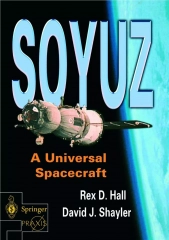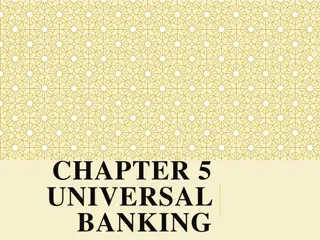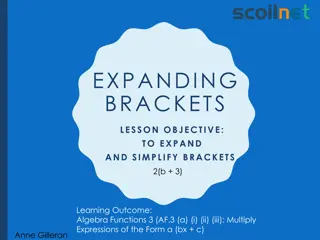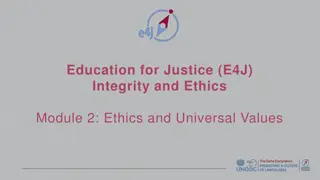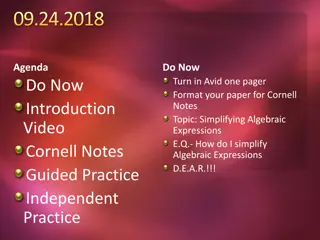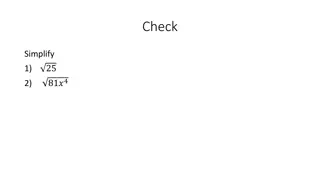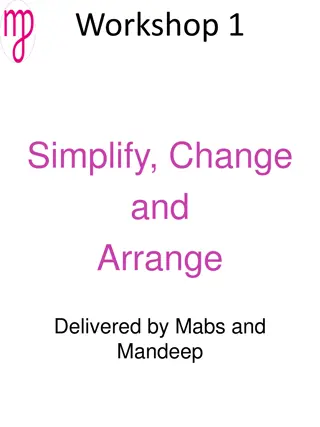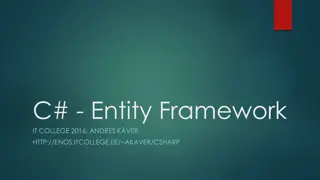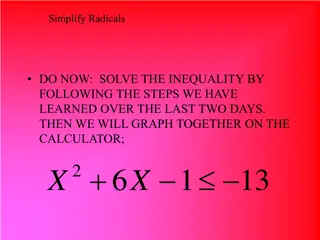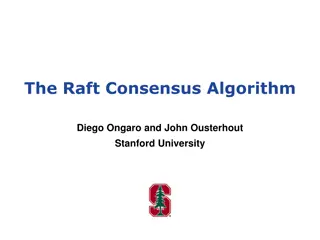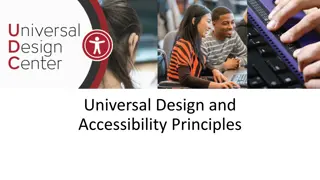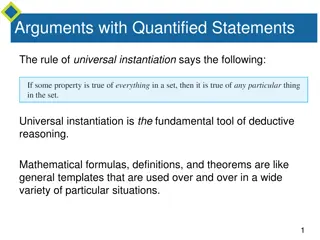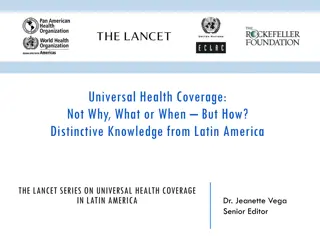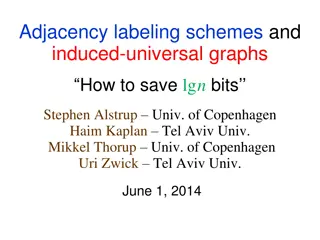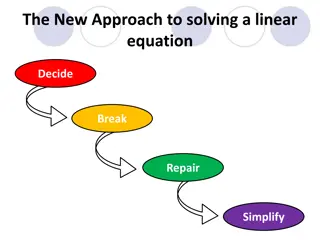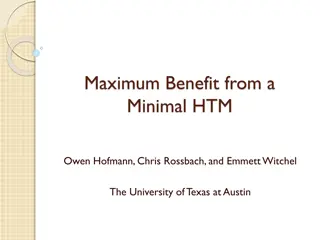Universal Evaluation Framework: Simplifying Evaluation Processes
This session introduces the Universal Evaluation Framework (UEF) developed for evaluating QAA Scotland Enhancement Themes. Participants learn key evaluation questions, evidence capture, and the Theory of Change to enhance evaluation confidence. The QAA Scotland Evaluation Odyssey details historical analyses, Gap Map creation, Lines of Enquiry (LoE), and UEF prototype development. The UEF, explored further in the Making UEF Work section, emphasizes the Theory of Change's importance in evaluation. Stakeholder engagement is highlighted in the Resilient Learning Communities Theme for impact analysis.
Download Presentation

Please find below an Image/Link to download the presentation.
The content on the website is provided AS IS for your information and personal use only. It may not be sold, licensed, or shared on other websites without obtaining consent from the author. Download presentation by click this link. If you encounter any issues during the download, it is possible that the publisher has removed the file from their server.
E N D
Presentation Transcript
Evaluation made much easier? Dr Liz Austen - Head of Evaluation & Research, Sheffield Hallam University & Visiting Professor, Staffordshire University Professor Stella Jones-Devitt - Professor of Critical Pedagogy, Staffordshire University & Visiting Professor, Leeds Beckett University Photo by Josh Duke on Unsplash
This interactive session introduces participants to the Universal Evaluation Framework (UEF) developed in conjunction with work undertaken by the session facilitators when evaluating the 20 Years plus of QAA Scotland Enhancement Themes. The framework is proposed as an evidence-informed game changing tool to support colleagues undertaking evaluation activities. Overview The UEF can be used regardless of levels of evaluation experience and starting point. Participants will be able to play with UEF and we will be focusing upon the Theory of Change component especially. By the end of the session, participants should be able to: Feel more confident in understanding key questions they need to address when embarking on evaluation at all levels Examine how to capture appropriate evidence to meet addressing those questions successfully.
Our QAA Scotland Evaluation Odyssey What have we done so far, and what are we planning Undertaken historical documentary analyses Produced a Gap Map to show areas for further exploration Created lines of enquiry (LoE) to examine the gaps Began holding relevant LoE conversations Facilitated lots of capacity & confidence-building activities Produced a Universal Evaluation Framework prototype
The Universal Evaluation Framework (UEF)
Making UEF work .
Exploring UEF Issue/Activity Point A A Q: How are we using a ToC in our evaluation of the QAAS Enhancement Themes? Q: What is a Theory of Change? A Theory of Change (ToC) is essentially a comprehensive description and illustration of how and why a desired change is expected to happen in a particular context. It is focused, in particular, on mapping out or filling in what has been described as the missing middle between what a program or change initiative does (its activities or interventions) and how these lead to desired goals being achieved. (The Centre for Theory of Change, 2021). Co-constructed ToC with key stakeholders in the Resilient Learning Communities Theme Contribution analysis of impact of the 20 years of the Enhancement Themes aligned to the co- constructed ToC
Nathaniel Pickering 2022 Key Elements of a Theory of Change Situation Aims/Goals Rationale Outcomes (short, medium, long) Outputs Inputs Activities Evidence: Barriers Evidence: What Works Assumptions
Nathaniel Pickering 2021 Understanding Theory of Change... Piece of Cake! Logical Model Victoria Sponge cake Planning and preparing ingredients, and recipe... Inputs ...mixing, baking... Activities ...delicious cake.. Outputs ...people who eat the cake are full and happy Outcomes
Group activity Instructions: Familiarise yourselves with the hexagons and scenario on your table (or online handout) which are parts of a Theory of Change for the given example. Map a logical connection from outcomes to activity, considering the associated inputs and outputs. Use the blank hexagons to add any important omissions or space for unintended consequences Discuss the assumptions, evidence, barriers and enablers underpinning your decisions. Discuss how this approach would be useful for your own work
Group Activity Scenario You are a course team at the University of Magic Enterprise, and you begin looking at your student outcomes data and student profiles. In a Staff-Student Committee meeting, it is raised by a student rep that there is a lack of interaction and social engagement on the course. You have read around the subject matter of belonging and mattering, learning communities and student engagement. Collaboratively, you then begin to think about how this situation can be changed. Supporting evidence: Austen, L., Hodgson, R., Heaton, C., Pickering, N., & Dickinson, J. (2021). Access, retention, attainment, progression an integrative literature review. AdvanceHE. https://www.advance-he.ac.uk/news-and-views/access-retention- attainment-progression-integrative-literature-review Photo by Dollar Gill on Unsplash
Designing a Peer Mentoring Programme: Play then discuss! Scheduled mentoring sessions during the academic year Participating students report an increased sense of belonging A How to Online Toolkit for practitioners 500 budget for payment of mentors Participating students feel motivated to engage with their course 50 students participate in the programme Recruitment and training of students Mentors and Mentees develop the skills and knowledge to support their peers Participating students are less likely to withdraw from their course day per week of staff time for admin Participating students achieve better levels of attainment
Nathaniel Pickering 2021 Understanding Theory of Change... Piece of Cake! Logical Model Programme: Peer Mentoring Victoria Sponge cake Planning and preparing ingredients, and recipe... Planning and preparing: money, staff, resources... Inputs ...mixing, baking... ...delivering peer-mentoring programme... Activities ...delicious cake.. ...mentees attend, and engage and mentors support their peers... Outputs ...people who eat the cake are full and happy ...motivated, valued, successful graduates.. Outcomes
Where would the UEF take you next on your evaluation journey? A ToC is not your evaluation! You will need an accompanying evaluation plan which aligns evidence collection to measures/indicators for each outcome. The next issues/activity point on the UEF would be......
How can you get involved with further development of the UEF? Let us know directly that you would like to play by emailing us at: scolpp@staffs.ac.uk OR Stay in touch via the QAAS Evaluation of Enhancement Themes pages for further opportunities to engage & some great resources OR Tweet us @jonesdevitt & @lizaustenbooth Thank you!











